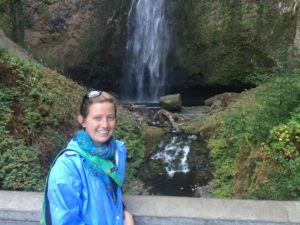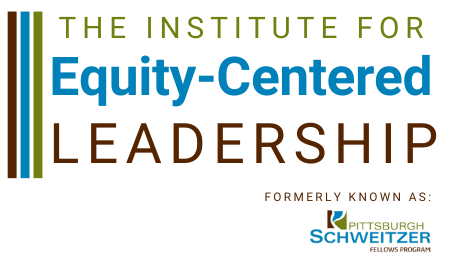In today’s Q and A with current Schweitzer Fellow Julia Saintz, we found out more about her project and how it will benefit the community.

Previously we discussed her personal interests, as well as her passion for sustainability and working with elders. To learn more about Julia click here.
Q: When did you become so interested and invested in the environment and sustainability?
Julia: I grew up on a farm. So, I grew up around horses all the time. I could even ride my horses to the Amish to get vegetables. Everyone else rode their bike around, but I rode a pony. My dad is a plumber and my mom is a horse person, sustainability was a part of their lives as an economic choice, but other than that it wasn’t a highlight. Even though my family members aren’t environmentalists, the environment has always been a big part of my life. I even remember the first time I saw somebody litter.
Q: Tell us about your project and how you’re planning to empower senior citizens to have a voice in their community.
Julia: My project is working with senior citizens to figure out what they think of the environment and sustainability. The biggest need that I see for seniors, especially when they’re living in a nursing home or senior living center, is that they just need companionship. That’s the main goal, the main service I’ll be doing for the seniors is that companionship. Then the environmental goal will be asking them what they think of environmentalism as a curiosity, kind of like an oral history. So, not only can they have companionship with me, but they can also still have an impact on their community. I’ve seen so many seniors who live at home who have such a great impact on their community. I want to provide a way that they can still do this when they’re living in a senior living center.
Q: How does your project connect to your graduate program?
Julia: Our program focuses on the environmental impacts, but that’s only a third of what we do. So, the big thing that you’ll hear when defining sustainability is how can we sustain the planet for future generations so that they can still live happy healthy lives? Ways to do that are looking through the economic lens of profit, the people lens of needing equity as we move forward (with the wage gap, gender inequality, and racial inequality), and of course the environmental lens of how we can help the planet. My project ties into the community engagement focus of sustainability. In order to move forward with sustainability, we need to make sure that everyone is involved in the planning process. Environmental organizations in the future need to focus more on senior citizens and asking them for input, especially when they’re in senior centers nearby.
Q: Can you give us any experiences where not including elders in the planning process have caused issues for organizations?
Julia: An example is a community east of the city that was trying to use geothermal wells for a new government building, but they didn’t ask the community members about it much. Though old and new maps said there were no mines in that space, an older community member told them there was a coal mine shaft there. They drilled anyway and had to drill twice as deep as planned because there was a coal mine shaft. We need senior citizens’ input in planning, especially when it comes to historic community things that might not show up on a map/in documents. They are the wealth of knowledge that we always underestimate.
Q: Why did you want to be a part of The Schweitzer Fellowship?
Julia: So, I’m new to Pittsburgh, and I’ve been able to do many service projects in my life. I really wanted to serve here in the U.S., and I really wanted to serve my local community too. Most fellowships are not service oriented, they are more learning oriented. [The Schweitzer Fellowship] is really experiential, and it is focused on service to the community, which I loved about Schweitzer and about this fellowship. Also Albert Schweitzer is a really cool guy, a real inspiration. When I was talking to my mother-in-law she knew about him and said it had to be a great fellowship if it’s modeled after him.
I also know Ian Rawson, he taught one of my classes [at Chatham], and I talked to him about it. He’s actually one of the people that founded the fellowship in Pittsburgh! So, talking to him I realized that this would be really awesome.
Q: What are some of your aspirations, or things you’d like to accomplish after your project is completed?
Julia: Right now, my career goal is to be a director of sustainability at a business or at a university. I really love the learning environment of universities; I would love to fill that role at a place of learning.
Q: How can donors support you and your project?
Julia: Donations would go toward funds for a sustainability leadership project led by elders throughout Pittsburgh and plant supplies for a monthly active adult activity in Homewood. It would be so helpful to have more resources to ensure that the community projects elders are invested in are completed.
-End Interview-
To support Julia as she starts her Pittsburgh Schweitzer journey click here.
To learn more about how your donation can help our Fellows and their projects, check out the current Fellows’ wish list!


































